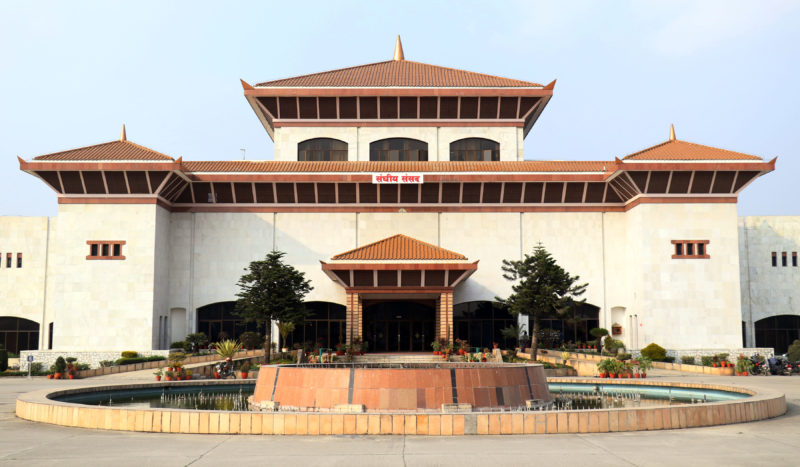Panel member objects to report’s provision
Kathmandu, September 3
An interesting development has taken place in the parliamentary State Affairs and Good Governance Committee regarding the Citizenship Amendment Bill’s report submitted by the sub-panel led by lawmaker Bijaya Subba after a member of the same sub-committee contradicted the report’s provision.
A week after the sub-panel handed over its report to committee Chair Shashi Shrestha stating that the report of the sub-panel had been agreed to by all the nine committee members, one of the sub-panel members Yasoda Subedi objected to the report sent by the sub-panel today during the full committee meeting.
Subedi said although she had agreed on other provisions endorsed by the sub-panel, she was not ready to accept the provision regarding change in the surname of women after marriage or divorce. This provision is stated in Clause 17 (3) of the Citizenship Act. She said it should be changed because of gender bias. Subedi said she was absent when the sub-panel endorsed the report, so she was not going to accept it at any cost.
On the other hand, Coordinator of the sub-panel Subba said that there was consensus in the sub-panel’s meeting, it would be not right to say someone was not present during the meeting.
The sub-panel, on August 27 presented the report on the most disputed provision of issuing naturalised citizenship card in the bill without any solution. Subba said he and his team had failed to reach conclusion on issuing naturalised citizenship.
There was also debate whether the law allows discussion on the sub-clause of the original act without it being mentioned in the government’s proposed amendment bill. For example, Clause 17 (3) of the Citizenship Act was not proposed by the government in its amendment bill. Subba and Nepali Congress lawmakers said they could not discuss it without the government proposing amendment of the act’s provisions. “It was against parliamentary regulation,” said Dilendra Prasad Badu, NC lawmaker.
The nine-member sub-committee was formed to submit its report within 15 days, but the sub-committee submitted its report after five months.
Nepali Congress lawmaker Amresh Kumar Singh said in the meeting that the sub-committee report was not legal because the panel had given the sub-panel only 15 days but they sent the report after five months.
But Chair Shrestha and other committee members said that although the sub-panel submitted its report late, it could be accepted. “Such late submissions should not happen in the future,” she added.
The Subba-led sub-committee has Subedi, Laxmi Chaudhary and Navaraj Silwal of the ruling Nepali Communist Party (NCP); Devendra Raj Kandel and Mina Pandey of Nepali Congress; Ram Sahay Prasad Yadav of Samajwadi Party-Nepal; Raj Kishor Yadav of Rastriya Janata Party-Nepal; and Prem Suwal of Nepal Workers and Peasants Party as members.
The bill was registered in the Parliament Secretariat on 22 August 2018, a year ago. But two dozen meetings failed to reach consensus on distributing naturalised citizenship.
So, the panel formed the sub-committee to come up with a solution. The panel had directed the sub-committee to meet all the national political parties and its top leaders and reach a conclusion on the disputed provisions and hand over the report. However, the sub-panel failed to come up with consensus on the provision for distributing naturalised citizenship.
In almost seven months and more than 20 meetings the panel held clause-wise discussion of the bill, but failed to reach consensus on naturalised citizenship.
Regarding martial naturalised citizenship, a foreign woman married to a Nepali man can acquire naturalised citizenship, but there is no clear provision for foreign men who marry Nepali women in the bill as well as in the constitution.
The second way of obtaining naturalised citizenship for foreigners is to stay in Nepal for 15 years. The third process for obtaining naturalised citizenship card involves children born from a Nepali mother and a foreign father.






